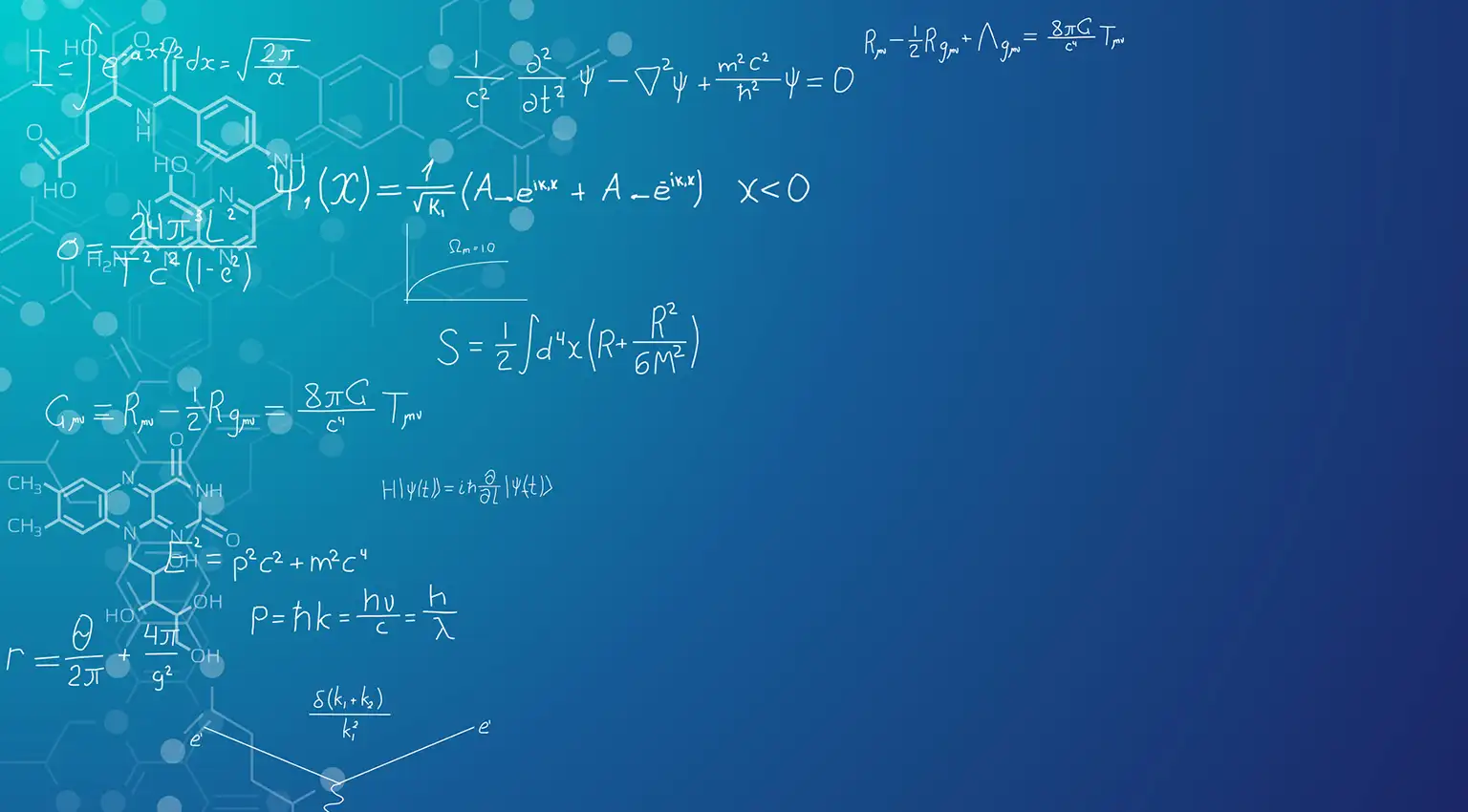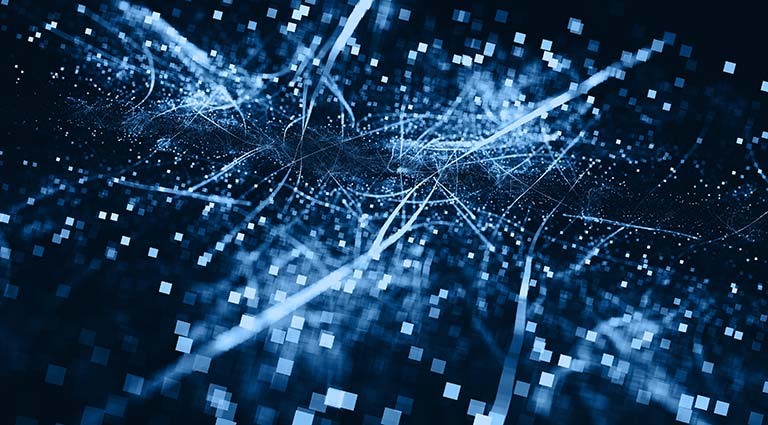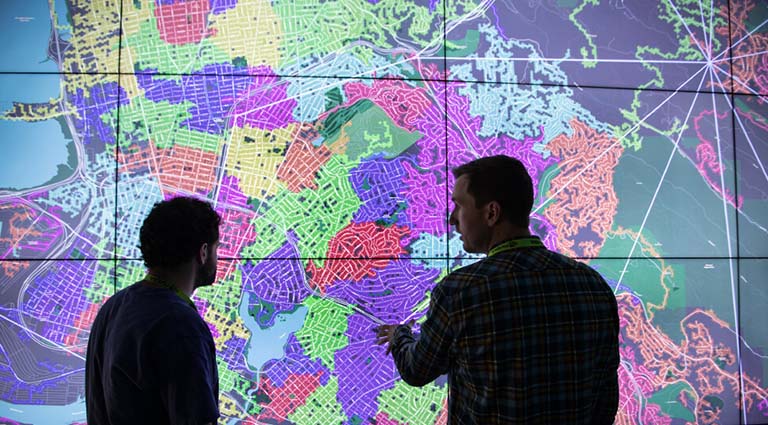Research
NLR provides scientific computing systems and services—and enables their highly productive use—for applied energy research, while advancing the forefront of mathematics and scientific computing for energy applications.
Enabling High-Impact Research
NLR data scientists, engineers, and mathematicians perform basic and applied research and develop crosscutting capabilities to enable rapid, breakthrough science across NLR and at the U.S. Department of Energy.
Our researchers actively publish, lead conferences, and collaborate across the national laboratory complex—as well as with academic and industry experts—to develop transformative insights into energy system data that lead to technological improvements, economic competitiveness, increased reliability, and national security.
Providing the Service of Computing
NLR computational scientists are deeply embedded in a wide range of research, working across theory and experiment to develop cross-disciplinary data acquisition and analysis tools and to tie these together with model development.
Our high-performance computing (HPC) systems are built to support varied and data-centric workloads, embrace virtualized and containerized computing, enable hybridized HPC-on-premise/commercial cloud workflows, and empower tight integration between experiment and computing.

The World's Largest Experimental Materials Database
NLR consolidated more than 140,000 data sample entries into one extensive experimental materials database—the High Throughput Experimental Materials Database—organizing a decade's worth of research into the largest such database in the world. This database accelerates data-driven research involving thin-film materials.

Only at NLR: National Solar and Wind Data Access
NLR also supports cross-disciplinary research by hosting extensive solar, wind, and materials databases.
The National Solar Radiation Database features a serially complete collection of hourly and half-hourly values of meteorological data and the three most common measurements of solar radiation: global horizontal, direct normal, and diffuse horizontal irradiance.
Advancing the Science of Computing
Advanced computing enables scientists and engineers to tackle challenges that cannot be addressed through traditional experimentation alone, whether due to scale, complexity, or practicality. Through our own research and the vibrant research community supported by the Advanced Scientific Computing Research program at the U.S. Department of Energy, NLR is part of ensuring U.S. leadership in supercomputing, computational science, and advanced networking for science. In particular, we provide open-access supercomputing and network facilities that are specially built for handling enormous quantities of scientific data—fostering collaboration that enables integration testing, data-driven decision-making, faster deployment, and reduced risk across the energy ecosystem.
Chip-to-Grid Data Center Initiative
Through the Chip-to-Grid Data Center Initiative, NLR addresses multifaceted challenges inherent in data center planning, capacity, security, and energy management.
Focus Areas
NLR's computational science capabilities are focused in the following areas.
Share
Last Updated Dec. 4, 2025





